
Muara: Brunei's Coastal Gem
Muara, located on the northeastern tip of Brunei, is a charming coastal town that offers a serene getaway for travelers. Known for its stunning beaches and tranquil atmosphere, Muara provides a perfect escape from the hustle and bustle of urban life. The town's pristine coastline, featuring the famous Muara Beach, is ideal for sunbathing, swimming, and picnicking. The clear blue waters and gentle waves make it a favorite spot for both locals and tourists. Beyond the beaches, Muara is also home to the Muara Port, Brunei's main deep-water port. This bustling hub of activity offers a glimpse into the country's maritime trade and industry. Visitors can enjoy a leisurely stroll around the port area and observe the impressive ships and cargo vessels. For those interested in local culture, the nearby Serasa Beach is a must-visit. It is a popular spot for water sports and is often bustling with activities, especially on weekends. Muara's natural beauty is complemented by its lush greenery and well-maintained parks. The Bukit Tempayan Pisang Recreational Park offers hiking trails and panoramic views of the surrounding area. This park is perfect for nature enthusiasts looking to explore Brunei's flora and fauna. Additionally, the town's close proximity to the capital city, Bandar Seri Begawan, makes it an ideal day-trip destination. Visitors can easily travel to Muara by car or public transport, making it a convenient and worthwhile addition to any Brunei itinerary.
Local tips in Muara
- Visit Muara Beach early in the morning for a peaceful experience and to catch the sunrise.
- Bring your own snacks and drinks to the beach as there are limited food options available on-site.
- Check the local tide schedule before planning your visit to ensure you can enjoy the beach at its best.
- Wear comfortable shoes if you plan to hike in Bukit Tempayan Pisang Recreational Park.
- Use public transport to travel from Bandar Seri Begawan to Muara to avoid parking hassles.
Muara: Brunei's Coastal Gem
Muara, located on the northeastern tip of Brunei, is a charming coastal town that offers a serene getaway for travelers. Known for its stunning beaches and tranquil atmosphere, Muara provides a perfect escape from the hustle and bustle of urban life. The town's pristine coastline, featuring the famous Muara Beach, is ideal for sunbathing, swimming, and picnicking. The clear blue waters and gentle waves make it a favorite spot for both locals and tourists. Beyond the beaches, Muara is also home to the Muara Port, Brunei's main deep-water port. This bustling hub of activity offers a glimpse into the country's maritime trade and industry. Visitors can enjoy a leisurely stroll around the port area and observe the impressive ships and cargo vessels. For those interested in local culture, the nearby Serasa Beach is a must-visit. It is a popular spot for water sports and is often bustling with activities, especially on weekends. Muara's natural beauty is complemented by its lush greenery and well-maintained parks. The Bukit Tempayan Pisang Recreational Park offers hiking trails and panoramic views of the surrounding area. This park is perfect for nature enthusiasts looking to explore Brunei's flora and fauna. Additionally, the town's close proximity to the capital city, Bandar Seri Begawan, makes it an ideal day-trip destination. Visitors can easily travel to Muara by car or public transport, making it a convenient and worthwhile addition to any Brunei itinerary.
When is the best time to go to Muara?
Iconic landmarks you can’t miss
Royal Regalia Museum
Explore the Royal Regalia Museum in Bandar Seri Begawan, a showcase of Brunei's regal history and cultural treasures.
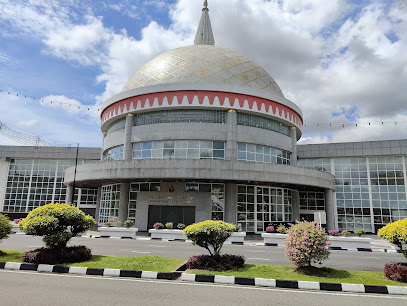
Taman Mahkota Jubli Emas
Discover the natural beauty and cultural significance of Taman Mahkota Jubli Emas, a tranquil park in Bandar Seri Begawan, Brunei.
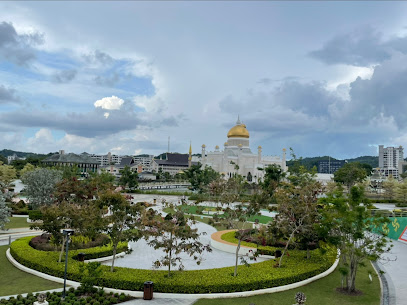
Muara Beach
Experience the tranquil charm of Muara Beach, a stunning destination in Brunei offering relaxation, adventure, and exquisite sunsets.
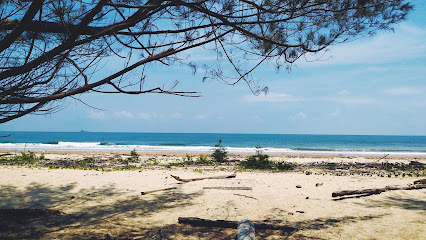
BIBD frame Brunei Darussalam
Discover the architectural beauty of the BIBD Frame in Bandar Seri Begawan, where modern design meets Brunei's rich culture.
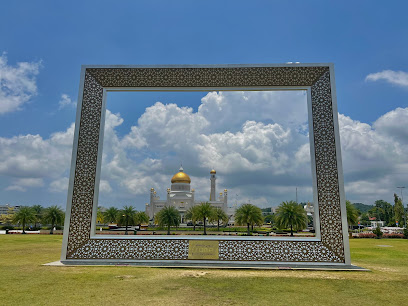
Brunei Energy Hub Dermaga Diraja
Explore the Brunei Energy Hub Dermaga Diraja - a unique blend of art, culture, and education in the heart of Bandar Seri Begawan.
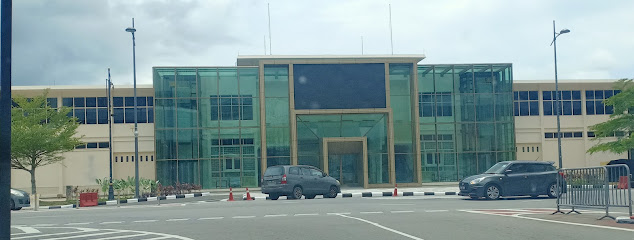
Kampong Ayer Cultural & Tourism Gallery
Explore the rich heritage of Kampong Ayer at the Cultural & Tourism Gallery, a gateway to Brunei's unique water village culture.
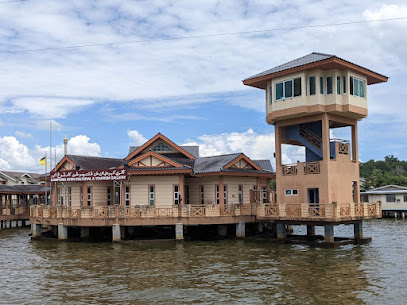
Taman Arkeologi Kota Batu
Uncover Brunei's past at Kota Batu Archaeological Park, the site of the ancient capital and a treasure trove of historical artifacts.
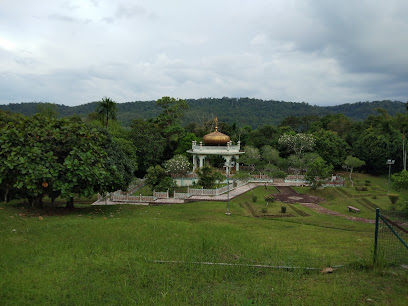
Pantai Meragang
Discover the natural beauty of Pantai Meragang, Brunei's serene coastal playground perfect for relaxation and marine exploration.
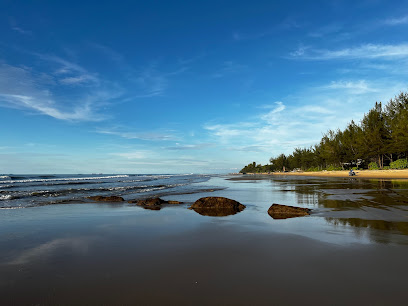
The Big Wall Brunei
Explore The Big Wall Brunei, a stunning tourist attraction surrounded by natural beauty and rich cultural heritage in Bandar Seri Begawan.
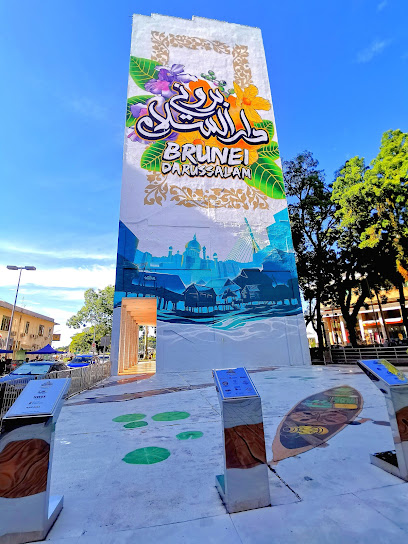
Mausoleum of Sultan Bolkiah
Explore the Mausoleum of Sultan Bolkiah, a stunning historical landmark in Kampung Kota Batu, showcasing Brunei's royal heritage and architectural beauty.
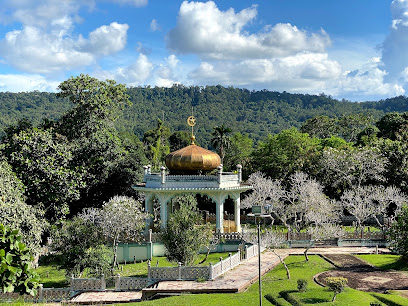
Pulau Muara Besar Bridge
Explore the breathtaking views and serene atmosphere of Pulau Muara Besar Bridge, a key highlight of Brunei's architectural landscape.
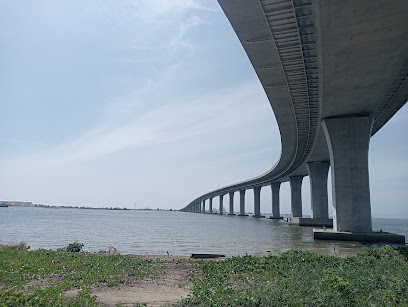
Muara Besar Lighthouse (Front)
Discover the Muara Besar Lighthouse: A historic maritime beacon on Pulau Muara Besar, offering breathtaking sea views and a peaceful atmosphere for travelers.

ANZAC Day Memorial
A serene historical landmark on Muara Beach, honoring ANZAC soldiers and the enduring bond between Brunei and Australia.
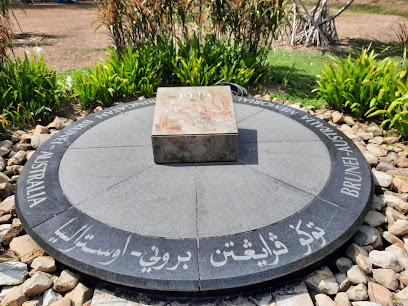
Muara, Brunei
Experience the essence of Brunei at Muara's local supermarket, where fresh produce and local specialties await every tourist's discovery.
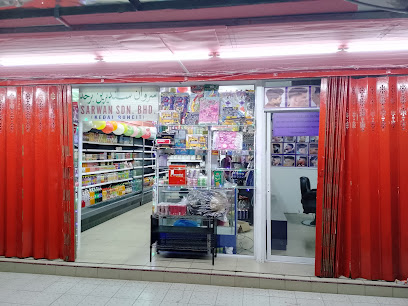
Brunei-Australia Memorial
Honoring the historic WWII ties between Brunei and Australia on the serene shores of Muara Beach. A symbol of friendship and sacrifice.

Unmissable attractions to see
Omar Ali Saifuddien Mosque
Discover the splendor of the Omar Ali Saifuddien Mosque in Brunei, a symbol of Islamic architecture and cultural richness in Southeast Asia.

Gadong Night Market
Experience Brunei's vibrant street food scene at Gadong Night Market, a lively hub of local flavors and cultural delights open nightly.
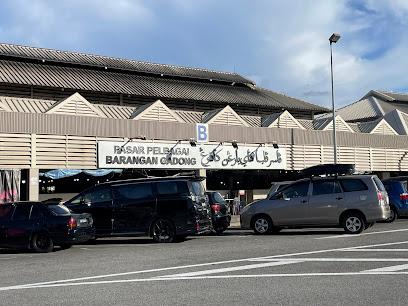
Jame' Asr Hassanil Bolkiah Mosque
Discover Brunei's largest mosque, a dazzling display of Islamic architecture with 29 golden domes and serene gardens.
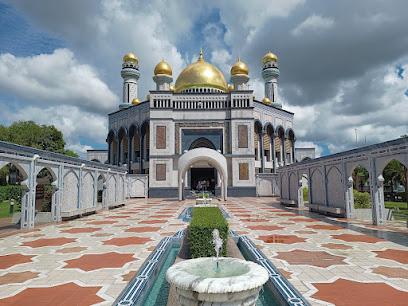
Royal Regalia Museum
Discover Brunei's royal heritage at the Royal Regalia Museum, showcasing the Sultanate's opulent treasures and rich cultural history.
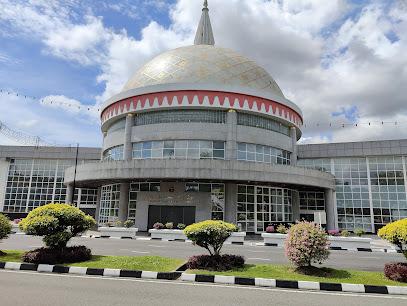
Istana Nurul Iman
Discover Istana Nurul Iman, the world's largest royal residence and a symbol of Brunei's blend of Islamic heritage and modern luxury.
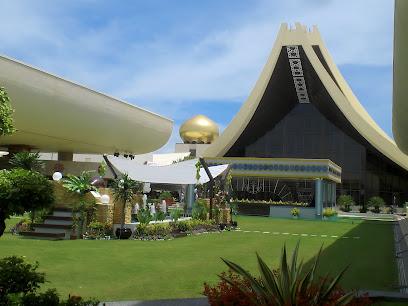
Jerudong Park Playground
Experience thrilling rides and enchanting attractions at Jerudong Park Playground, Brunei's ultimate destination for family fun and adventure.
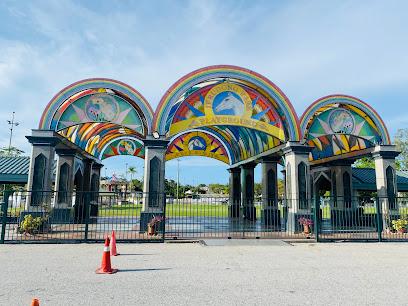
Kianggeh Market
Experience the vibrant culture and flavors of Brunei at Kianggeh Market, a traditional marketplace on the Kianggeh River in Bandar Seri Begawan.
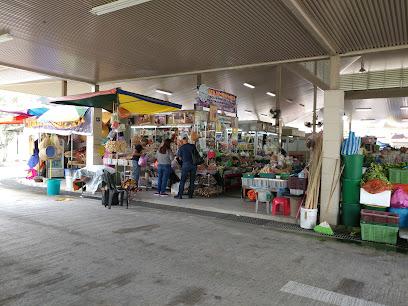
Malay Technology Museum
Discover Brunei's rich cultural heritage and traditional technologies at the Malay Technology Museum in Kota Batu.
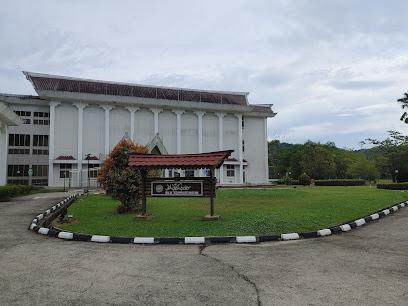
Raja Isteri Pengiran Anak Hajah Saleha Bridge
Discover Brunei's iconic cable-stayed bridge, offering stunning views and a glimpse into the nation's modern progress and cultural heritage.
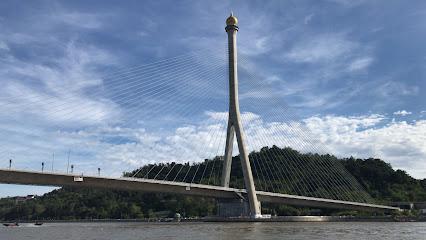
Ash Shaliheen Mosque
Discover Brunei's Moroccan-style mosque: A serene sanctuary blending Islamic art and modern design in Bandar Seri Begawan.
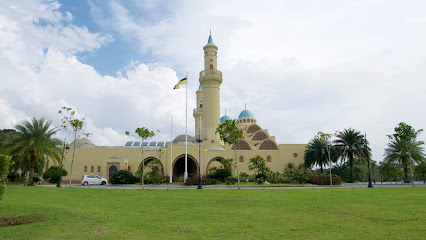
Taman Mahkota Jubli Emas
Experience the beauty and tranquility of Brunei at Taman Mahkota Jubli Emas, a riverfront park with stunning views and vibrant gardens.
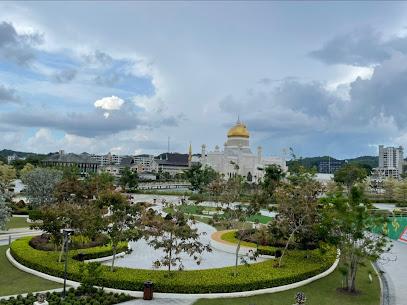
Labuan War Cemetery
A serene and historically significant site in Labuan, honoring the fallen heroes of World War II and the Borneo campaigns.
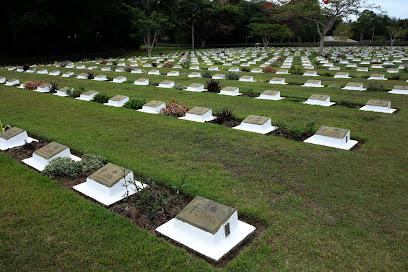
Damuan Recreational Park
Escape to Damuan Recreational Park in Bandar Seri Begawan for a tranquil retreat amidst lush greenery, scenic waterfront views, and cultural sculptures.
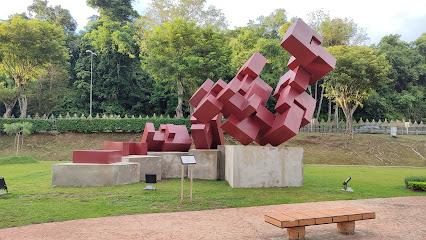
Balai Khazanah Islam Sultan Haji Hassanal Bolkiah
Explore Brunei's Islamic heritage at this museum showcasing artifacts, manuscripts, and exhibits that highlight Islam's cultural influence.
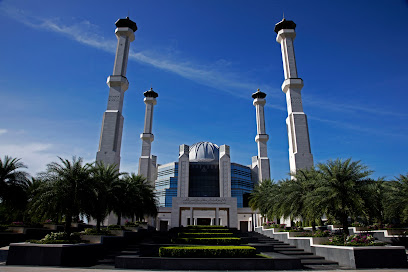
Kampung Meritam's Mud Volcanoes
Explore the bubbling mud volcanoes of Kampung Meritam in Limbang, Sarawak – a unique geological wonder and therapeutic escape.
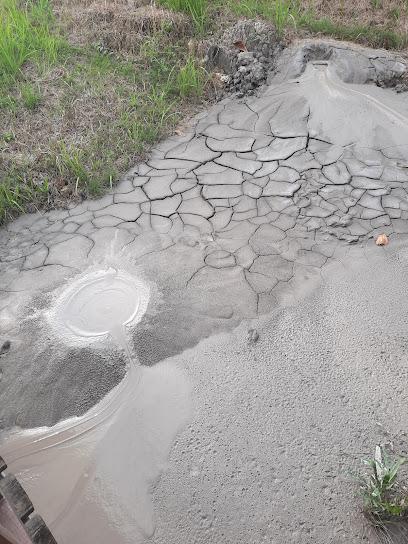
Essential places to dine
Chop Jing Chew
Discover Chop Jing Chew: A charming restaurant in Bandar Seri Begawan offering delectable breakfasts and fresh pastries in a cozy atmosphere.
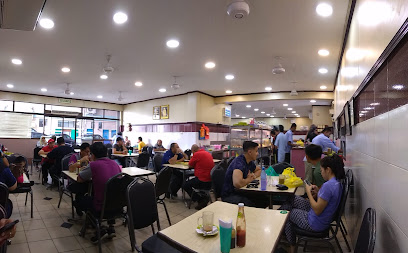
Kaizen Sushi Yayasan
Discover the best of Japanese cuisine at Kaizen Sushi Yayasan in Bandar Seri Begawan - where freshness meets artistry.
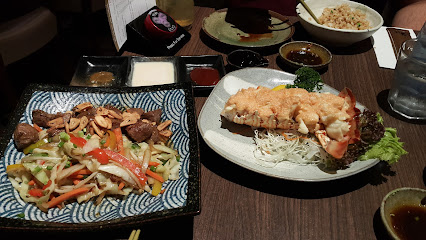
Seaworld Neptune Restaurant
Experience the best of seafood dining at Seaworld Neptune Restaurant in Jerudong - fresh flavors and stunning views await!
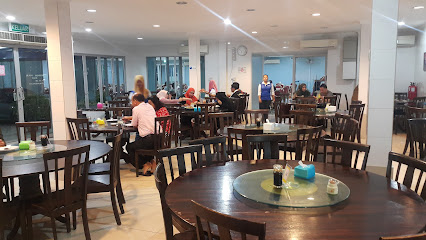
Tarindak D'Seni
Experience authentic Bruneian cuisine at Tarindak D'Seni, where every meal is a celebration of local flavors and culture.
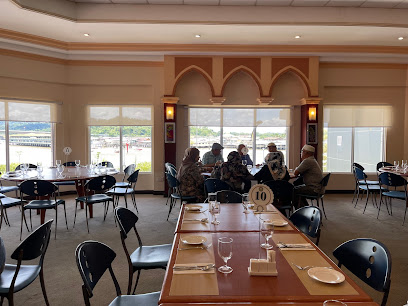
Little Audrey's Café
Experience culinary delights at Little Audrey's Café in Bandar Seri Begawan – where local flavors meet international cuisine in a cozy atmosphere.
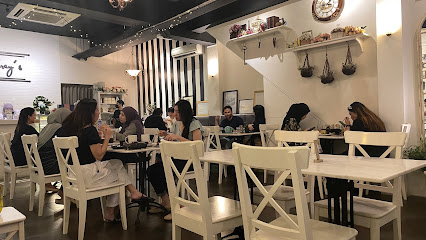
Tandoor.com Restaurant
Experience the rich flavors of India at Tandoor.com Restaurant in Bandar Seri Begawan – where culinary excellence meets warm hospitality.
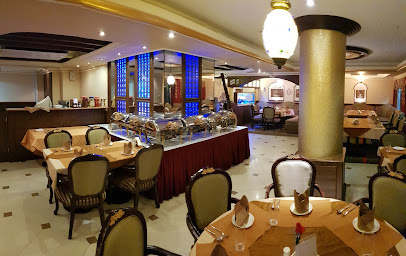
Restoran Aneka Rasa
Experience authentic Malaysian cuisine at Restoran Aneka Rasa in Bandar Seri Begawan - a culinary journey filled with rich flavors and warm hospitality.
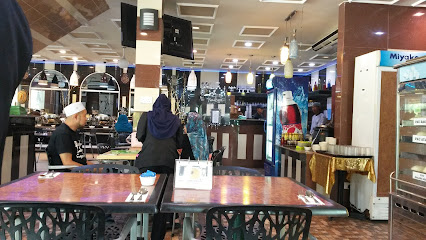
Thien Thien Restaurant Kiulap
Discover authentic Chinese flavors at Thien Thien Restaurant Kiulap in Bandar Seri Begawan – a culinary haven for food enthusiasts.
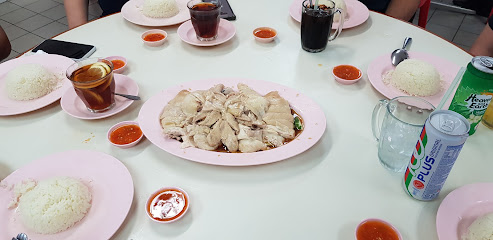
Pondok Seri Wangi Restaurant
Experience the authentic taste of Indonesia at Pondok Seri Wangi Restaurant in Bandar Seri Begawan – where culinary tradition meets modern comfort.
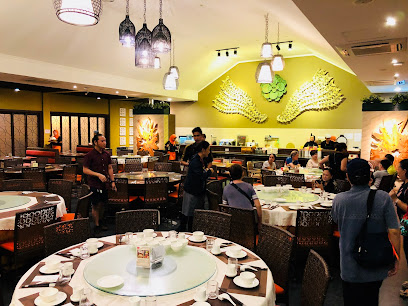
Alter Ego Fusion Cafe
Discover the vibrant flavors of Southeast Asia at Alter Ego Fusion Cafe in Bandar Seri Begawan – where tradition meets innovation.
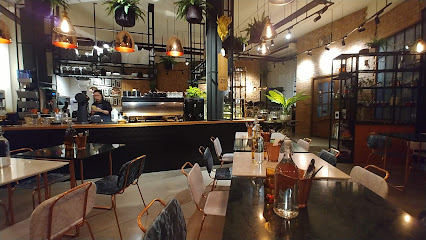
Gwad Basha Arabic Restaurants
Discover authentic Arabic cuisine at Gwad Basha Arabic Restaurant in Bandar Seri Begawan - where every dish tells a story.
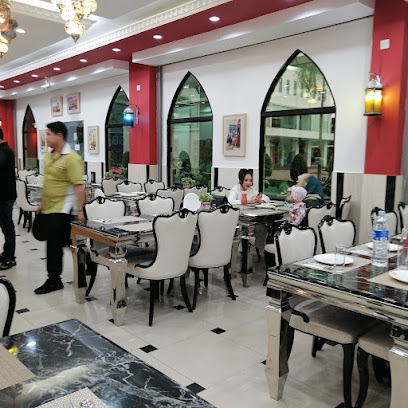
Yamyam Korea Restaurant
Experience the essence of Korean cuisine at Yamyam Korea Restaurant in Bandar Seri Begawan - where tradition meets flavor.
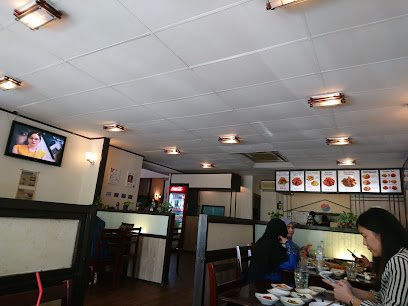
Zorba's Café Sdn Bhd
Discover authentic Greek flavors at Zorba's Café Sdn Bhd in Bandar Seri Begawan - a must-visit Mediterranean restaurant offering delicious cuisine.
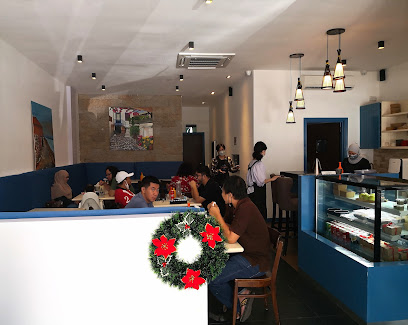
Thiam Hock Restaurant
Experience the authentic flavors of Chinese cuisine at Thiam Hock Restaurant in Bandar Seri Begawan, renowned for its exquisite Curry Fish.
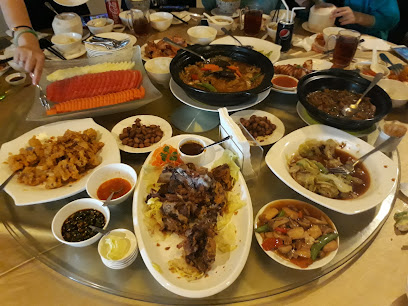
Fez & Cip
Savor the best fish and chips at Fez & Cip in Bandar Seri Begawan – where freshness meets flavor in every bite.
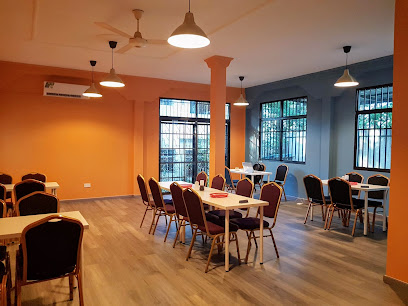
Markets, malls and hidden boutiques
SIN GUAN HIN COFFEE SHOP
Discover the Essence of Bruneian Coffee Culture at Sin Guan Hin Coffee Shop - A Cozy Retreat for Coffee Lovers.
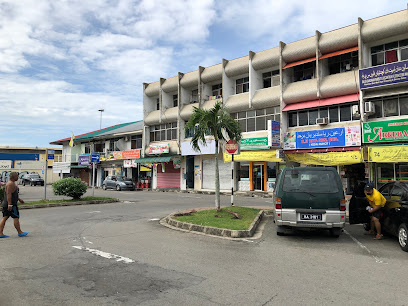
Soon Lee Megamart Kg Sabun
Explore Soon Lee Megamart in Kg Sabun for a delightful shopping experience filled with local flavors and essentials.
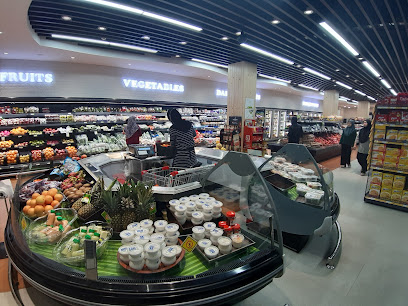
101 The Eateries Bakery & cafe
Discover the delightful flavors of 101 The Eateries Bakery & Cafe in Muara, where every bite is a taste of local sweetness.
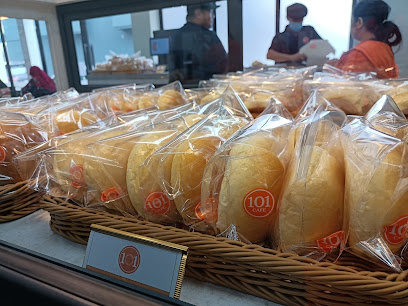
BWN Souvenirs Store
Discover authentic Brunei souvenirs at BWN Souvenirs Store, where local craftsmanship meets warm hospitality in the heart of Bandar Seri Begawan.
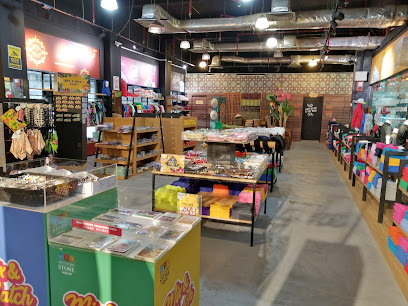
Euro Classic Collection
Explore Euro Classic Collection for unique gifts and elegant home furnishings reflecting Brunei's rich culture and artistry.
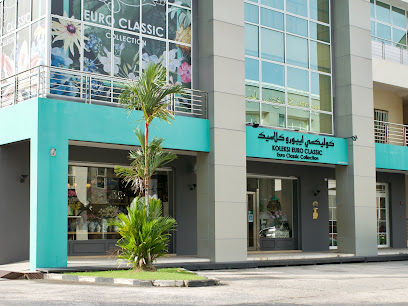
Brunei Souvenirs & Gifts
Discover unique treasures at Brunei Souvenirs & Gifts, where local culture meets exquisite craftsmanship in every item.
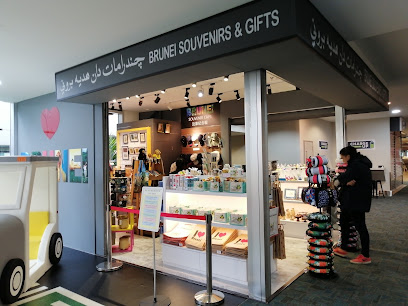
Gong Cha
Discover the vibrant flavors of Gong Cha in Muara, where bubble tea and artisanal coffee create a delightful beverage experience for every traveler.
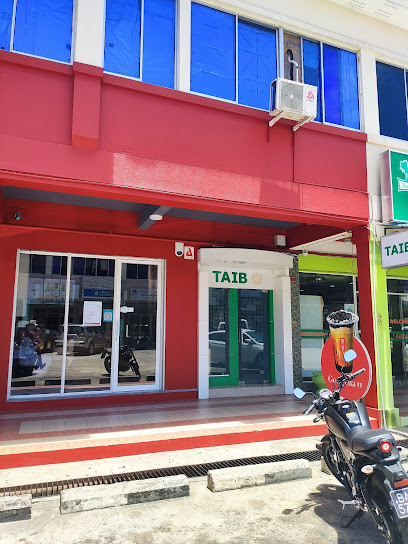
Your Brunei Memories by AEWON
Explore a treasure trove of local crafts and unique souvenirs at Your Brunei Memories by AEWON in Bandar Seri Begawan.
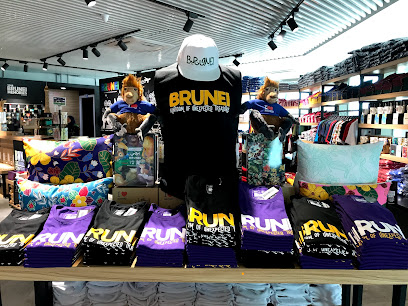
Kadai Balqis
Discover a shopping paradise at Kadai Balqis in Bandar Seri Begawan, showcasing local crafts, fashion, and delicious dining options.
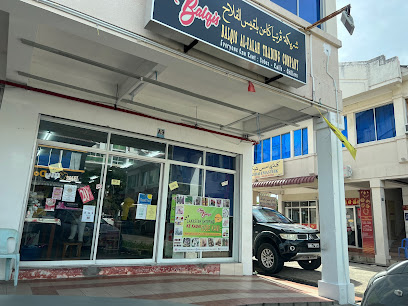
Capt Fred Fishing & Marine Supply - Muara
Discover the best fishing gear and marine supplies at Capt Fred Fishing & Marine Supply, your go-to store in Muara for all fishing enthusiasts.
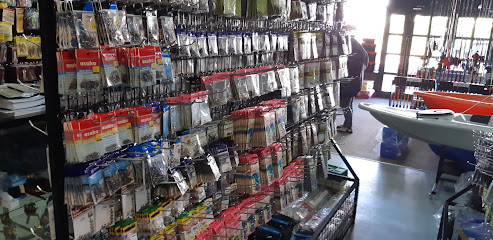
Barka Enterprises
Explore Barka Enterprises, the ultimate sporting goods store in Canter, offering top-quality gear for sports enthusiasts of all levels.
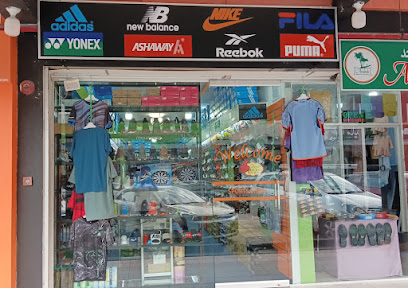
Muara Town
Experience the genuine taste of Brunei at Muara Town's charming bakery, where every bite tells a story of tradition and culinary artistry.
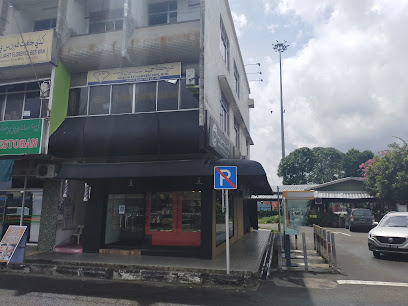
Al-Shafith Mega Store
Explore the diverse offerings of Al-Shafith Mega Store in Kilanas, your go-to grocery destination for local and international products.
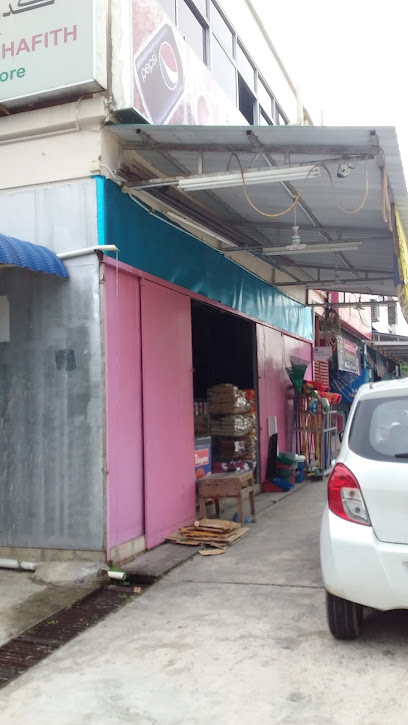
WW MART
Explore WW MART in Serasa for a diverse selection of quality home goods, from kitchen essentials to unique decor items, all in a welcoming atmosphere.
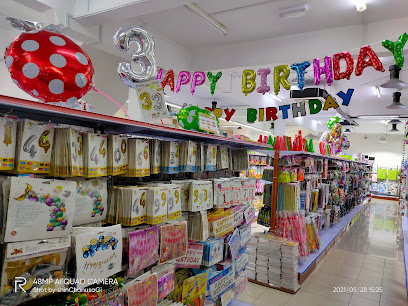
Remy Coffee Co.
Discover the heart of Brunei's coffee culture at Remy Coffee Co., a cozy café in Muara town offering expertly crafted brews and local charm.

Essential bars & hidden hideouts
Jazz Bar And Grill
Experience the perfect blend of exquisite Western cuisine and soulful live jazz at Kiulap's beloved Jazz Bar and Grill.
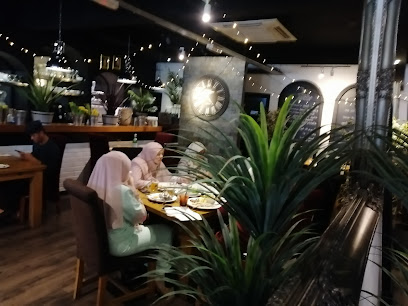
Royal Brunei Business Class Lounge
Experience unparalleled comfort and luxury at the Royal Brunei Business Class Lounge, your perfect retreat before flying.
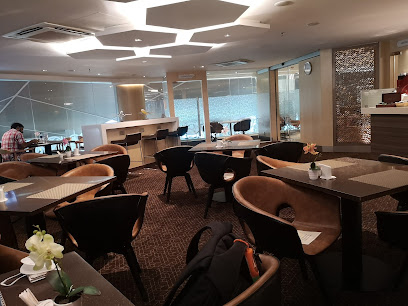
Fez & Cip
Experience the best fish and chips in Bandar Seri Begawan at Fez & Cip, where quality meets comfort in a cozy dining atmosphere.
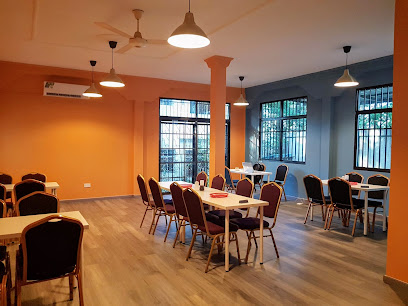
Maharani Restaurant
Experience the best of Indian cuisine at Maharani Restaurant, where rich flavors and warm hospitality await every visitor.
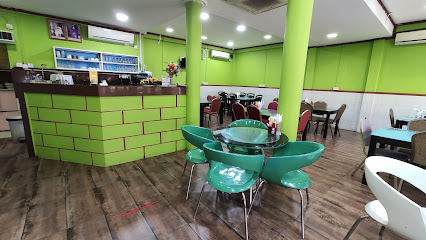
HUNGRY BAR & BISTRO
Discover the unique culinary offerings at Hungry Bar & Bistro, where local flavors meet international cuisine in a vibrant setting.
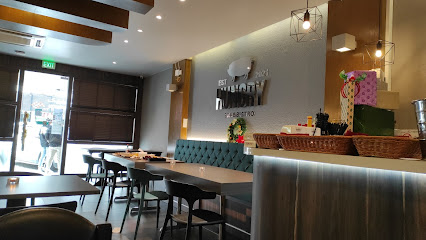
Tropicana Restaurant
Discover the rich flavors of Asia at Tropicana Restaurant in Bandar Seri Begawan, a must-visit for authentic culinary experiences.
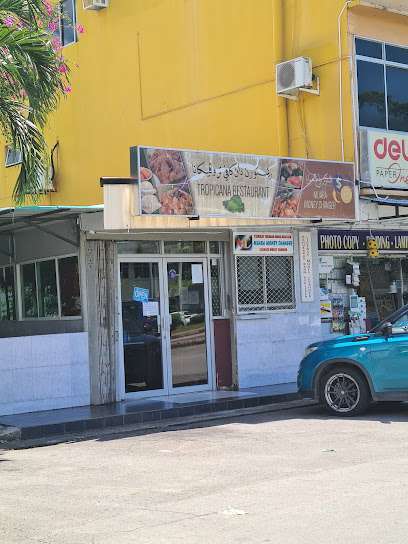
Sky Lounge
Relax and rejuvenate at the Sky Lounge in Bandar Seri Begawan, where comfort meets breathtaking views for every traveler.
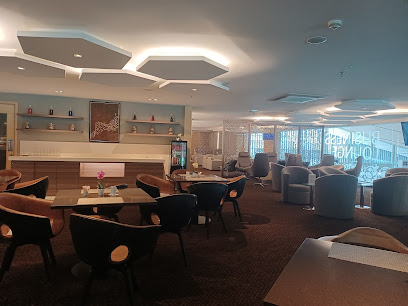
Pro-X Pool House
Experience the thrill of sports at Pro-X Pool House, Bandar Seri Begawan's favorite sports bar with great food and drinks.
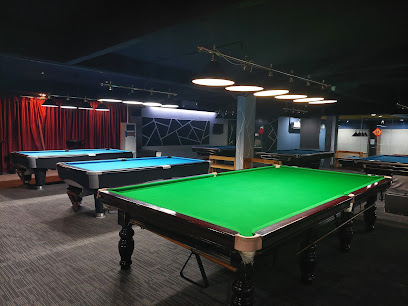
Rafzan Salaian Lumapas
Discover the inviting charm of Rafzan Salaian Lumapas, a cozy bar in Kampung Kilugus, offering delightful drinks and an authentic local experience.
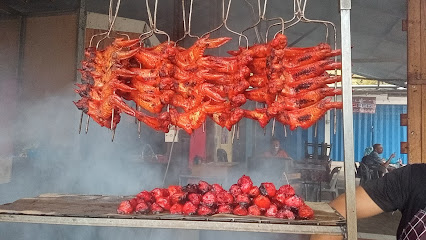
Pool Deck
Experience the ultimate relaxation at the Pool Deck in Jerudong, a tranquil restaurant by the pool offering refreshing drinks and a serene atmosphere.
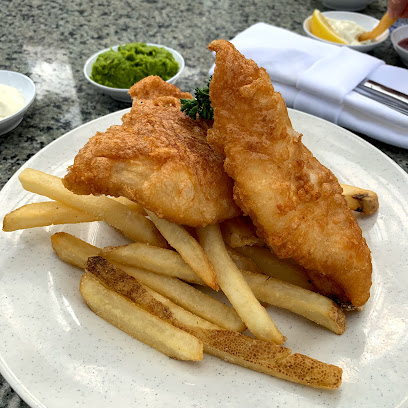
Berrylocal Cafe
Discover the flavors of Bandar Seri Begawan at Berrylocal Cafe, where local ingredients and warm hospitality meet.
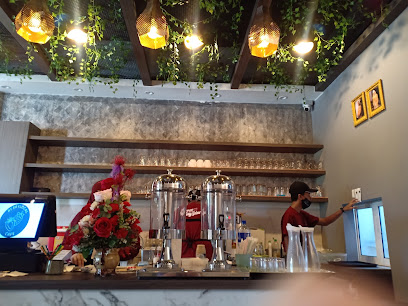
Pondok Nasi Yazie & Snow Wash
Experience the vibrant flavors of Malaysia at Pondok Nasi Yazie & Snow Wash, a must-visit bar in Pengkalan Batu for authentic dishes and refreshing desserts.
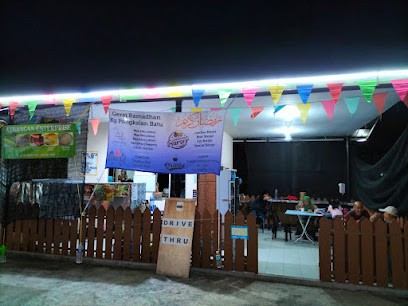
Nolavilla
Discover the vibrant nightlife at Nolavilla, a premier bar in Bandar Seri Begawan, offering refreshing drinks and a lively atmosphere for all.

Air Kelapa Muda
Experience the refreshing delight of fresh coconuts at Air Kelapa Muda in Mentiri, a serene bar perfect for relaxation and local flavor.

Local Phrases
-
- HelloSelamat petang
[suh-lah-muht puh-tahng] - GoodbyeSelamat tinggal
[suh-lah-muht tihng-gahl] - YesYa
[yah] - NoTidak
[tee-dahk] - Please/You're welcomeSila
[see-lah] - Thank youTerima kasih
[tuh-ree-mah kah-see] - Excuse me/SorryMaaf
[mah-ahf] - How are you?Apa khabar?
[ah-pah kah-bahr] - Fine. And you?Baik. Dan kamu?
[bah-ee. dahn kah-moo] - Do you speak English?Boleh cakap English?
[boh-leh chah-kahp Ing-glis] - I don't understandSaya tidak faham
[sah-yah tee-dahk fah-hahm]
- HelloSelamat petang
-
- I'd like to see the menu, pleaseSaya mahu melihat menu, sila
[sah-yah mah-hoo muh-lee-haht meh-nuh, see-lah] - I don't eat meatSaya tidak makan daging
[sah-yah tee-dahk mah-kahn dy-ah-ng] - Cheers!Sihat!
[see-haht] - I would like to pay, pleaseSaya ingin membayar, sila
[sah-yah een-geen muhm-bah-yahr, see-lah]
- I'd like to see the menu, pleaseSaya mahu melihat menu, sila
-
- Help!Tolong!
[toh-lohng] - Go away!Pergi!
[puhr-gee] - Call the Police!Panggil polis!
[pahng-geel poh-lees] - Call a doctor!Panggil doktor!
[pahng-geel dohk-tuhr] - I'm lostSaya sesat
[sah-yah suh-saht] - I'm illSaya sakit
[sah-yah sah-keet]
- Help!Tolong!
-
- I'd like to buy...Saya ingin membeli...
[sah-yah een-geen muhm-buh-lee] - I'm just lookingSaya hanya melihat
[sah-yah huhn-yah muh-lee-haht] - How much is it?Berapa harganya?
[buh-rah-pah hahr-gahn-yah] - That's too expensiveItu terlalu mahal
[ee-too tuh-ruh-lah mah-hahl] - Can you lower the price?Boleh kurangkan harga?
[boh-leh koor-ahn-gahn hahr-gah]
- I'd like to buy...Saya ingin membeli...
-
- What time is it?Pukul berapa sekarang?
[poo-kool buh-rah-pah suh-kah-rahng] - It's one o'clockPukul satu
[poo-kool sah-too] - Half past (10)Pukul setengah (sepuluh)
[poo-kool suh-tuh-ngah (suh-poo-looh)] - MorningPagi
[pah-gee] - AfternoonPetang
[puh-tahng] - EveningMalam
[mah-lahm] - YesterdaySemalam
[suh-mah-lahm] - TodayHari ini
[hah-ree ee-nee] - TomorrowEsok
[eh-sohk] - 1Satu
[sah-too] - 2Dua
[doo-ah] - 3Tiga
[tee-gah] - 4Empat
[uhm-paht] - 5Lima
[lee-mah] - 6Enam
[uh-nahm] - 7Tujuh
[too-joo] - 8Lapan
[lah-pahn] - 9Sembilan
[suhm-bee-lahn] - 10Sepuluh
[suh-poo-looh]
- What time is it?Pukul berapa sekarang?
-
- Where's a/the...?Di mana...
[dee mah-nah] - What's the address?Apa alamatnya?
[ah-pah ah-lah-maht-nyah] - Can you show me (on the map)?Boleh tunjukkan saya (di peta)?
[boh-leh toon-jook-kahn sah-yah (dee peh-tah)] - When's the next (bus)?Bila yang seterusnya (bas)?
[bee-lah yahng suh-tuh-roos-nyah (bahs)] - A ticket (to ....)Satu tiket (ke ....)
[sah-too tee-keht (keh ....)]
- Where's a/the...?Di mana...
History of Muara
-
Before the arrival of Western powers, Muara was an integral part of the Bruneian Empire. It was primarily a fishing village and a trading hub due to its strategic location along the coast. The local population engaged in maritime trade with neighboring regions, exchanging goods such as spices, gold, and textiles.
-
In the late 19th century, the British North Borneo Chartered Company began to show interest in Muara due to its potential as a deep-water port. By 1888, Brunei became a British protectorate, and Muara's significance grew as the British sought to exploit its natural resources and strategic maritime position.
-
The establishment of Muara Port in the early 20th century marked a significant development in the region. The port became the primary gateway for maritime trade in Brunei, facilitating the import and export of goods. This development spurred economic growth and led to the modernization of Muara's infrastructure.
-
During World War II, Muara was occupied by Japanese forces. The port and surrounding areas were strategically important for military logistics and supplies. The occupation led to significant hardships for the local population, but the end of the war saw Muara returning to British control and beginning a period of reconstruction.
-
Following Brunei's independence in 1984, Muara continued to play a vital role in the nation's economy. The port underwent further expansion and modernization, becoming a key component of Brunei's trade infrastructure. Today, Muara is a blend of historical significance and modern development, reflecting its rich cultural heritage and economic importance.
-
Muara is home to a diverse cultural heritage that includes traditional Bruneian customs and practices. The local community continues to celebrate various festivals and cultural events, preserving their historical roots while embracing modernity. The area is known for its vibrant markets, traditional crafts, and culinary delights that offer a glimpse into the rich cultural tapestry of Brunei.
Muara Essentials
-
Muara is located in the Brunei-Muara District of Brunei. The closest international airport is Brunei International Airport in the capital city, Bandar Seri Begawan, approximately 30 kilometers away. From the airport, you can take a taxi or rent a car to reach Muara, which typically takes around 30 to 45 minutes by road. Alternatively, you can use public buses that connect Bandar Seri Begawan to Muara.
-
Muara is a relatively small town, and many of its attractions are within walking distance. For longer trips, taxis are readily available and can be hailed on the street or booked through local ride-hailing apps. Public buses operate within Muara and connect to nearby towns. Renting a car can also be convenient for exploring the surrounding areas at your own pace.
-
The official currency of Brunei is the Brunei Dollar (BND), which is interchangeable with the Singapore Dollar (SGD). Credit cards are widely accepted in hotels, restaurants, and larger shops, but it is advisable to carry some cash for smaller establishments and local markets. ATMs are available in Muara, so withdrawing cash is convenient.
-
Muara is generally a safe destination for tourists. However, it is always wise to take standard precautions. Avoid walking alone at night in unfamiliar areas and keep an eye on your belongings in crowded places. There are no specific high-crime areas targeting tourists, but staying vigilant and aware of your surroundings is always best.
-
In case of an emergency, dial 993 for police assistance, 995 for fire services, and 991 for medical emergencies. The local police station and medical facilities are available in Muara. It is recommended to have travel insurance that covers medical emergencies. For minor health issues, there are pharmacies in the town where you can purchase over-the-counter medications.
-
Fashion: Do dress modestly, especially when visiting religious sites. Avoid wearing revealing clothing. Religion: Do respect local customs and traditions. Always remove your shoes when entering mosques. Public Transport: Do be respectful and give up your seat to elderly passengers. Don't eat or drink on public transport. Greetings: Do greet people with a smile and a slight bow of the head. A handshake is common among men but less so among women. Eating & Drinking: Do try local delicacies and accept food offerings graciously. Don't refuse hospitality, as it is considered impolite.
-
To experience Muara like a local, visit the local markets where you can buy fresh seafood and traditional Bruneian goods. Engage with locals, as they are often friendly and willing to share stories about the town's history and culture. Don't miss visiting the Muara Beach for a relaxing day by the sea. For a unique experience, take a boat ride to Pulau Muara Besar, an island known for its natural beauty and wildlife.
Trending Landmark in Muara
-
Royal Regalia Museum
-
Taman Mahkota Jubli Emas
-
Muara Beach
-
BIBD frame Brunei Darussalam
-
Brunei Energy Hub Dermaga Diraja
-
Kampong Ayer Cultural & Tourism Gallery
-
Taman Arkeologi Kota Batu
-
Pantai Meragang
-
The Big Wall Brunei
-
Mausoleum of Sultan Bolkiah
-
Pulau Muara Besar Bridge
-
Muara Besar Lighthouse (Front)
-
ANZAC Day Memorial
-
Muara, Brunei
-
Brunei-Australia Memorial
Nearby Cities to Muara
-
Things To Do in Bandar Seri Begawan
-
Things To Do in Jerudong
-
Things To Do in Bangar
-
Things To Do in Tutong
-
Things To Do in Seria
-
Things To Do in Kuala Belait
-
Things To Do in Miri
-
Things To Do in Kota Kinabalu
-
Things To Do in Sandakan
-
Things To Do in Palawan
-
Things To Do in Kuching
-
Things To Do in Puerto Princesa
-
Things To Do in Balikpapan
-
Things To Do in Zamboanga City
-
Things To Do in Mui Ne







